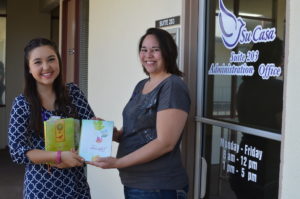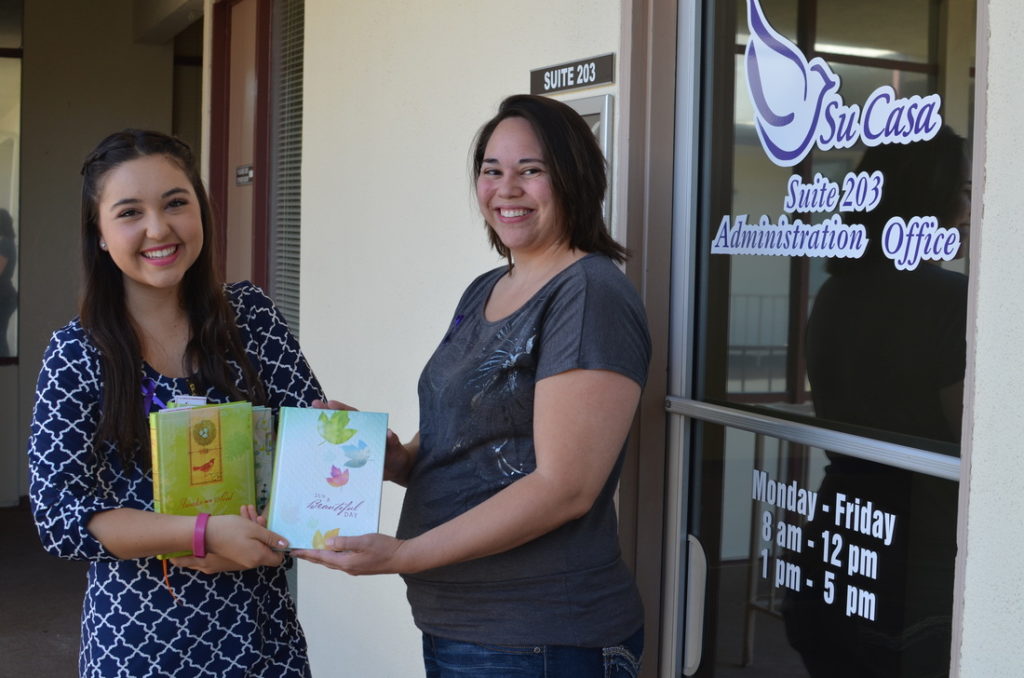
A journaler since age 6, freshman Taryn Murphy has long understood the cathartic power of putting pen to paper. For her, journaling has not only been a way to track her personal growth but to process emotions.
So when she wanted to help victims of human trafficking and domestic abuse heal, providing them with journals made sense. Although her mother originally suggested the idea, Murphy started her charity, Journals for the Journey, in August of 2016.
Murphy began by approaching businesses, asking for money or journal donations. Most of the journals Murphy collected came from her neighbors.
“At first I was faced with a lot of rejection,” she said. “You don’t realize until you’re the one asking for donations how much rejection you face.”
Murphy also reached out to local safe houses for women victims of domestic abuse and, in total, received requests for between 500 and 600 journals.
Her first success came on Oct. 7, with a donation was to Su Casa, a California-based domestic abuse shelter. She gave a total of five journals — her entire stock.
Murphy originally became passionate about victims of trafficking after doing research for a high school debate.
“It was shocking to me that I was in that target age group,” Murphy said. “It makes you want to educate yourself and to educate your friends.”
Her debate partner and older sister, junior Ryan Murphy, said she is proud of her younger sister.
“I think my sister found a good and specific need to tell,” she said. “People think giving journals is insignificant, but I don’t think they realize the impact journaling can have on you as a person.”
Brock Lutz, Director of Health Services, said he often recommends journaling for his patients.
“One of the common responses to trauma is to try to block out the experience and the related emotions,” Lutz said in an email. “So, in journaling, clients are given the task of going back to the experience, remembering the details of what happened, and experiencing those emotions, so they can experience healing or forgiveness.”
Although no one technique can work for every client, Lutz said, journaling can help people work through their emotions or understand triggers for addiction, depression, or anxiety.
Taryn Murphy said she hopes to continue Journals for the Journey through college, although it’s still difficult to get donations, since she’s not listed as a 501(c)(3) organization. Becoming one would cost several hundred dollars.
“I could buy so many journals with that money,” she said.
But quantity is not what her charity about, she said.
“The goal I had was to touch lives,” she said. “As much as I can do in the moment, that’s how much I want to impact someone’s life.”
To find more information on Journals for the Journey or to donate, visit journalsforthejourney.org or email Taryn Murphy at tmurphy@hillsdale.edu

